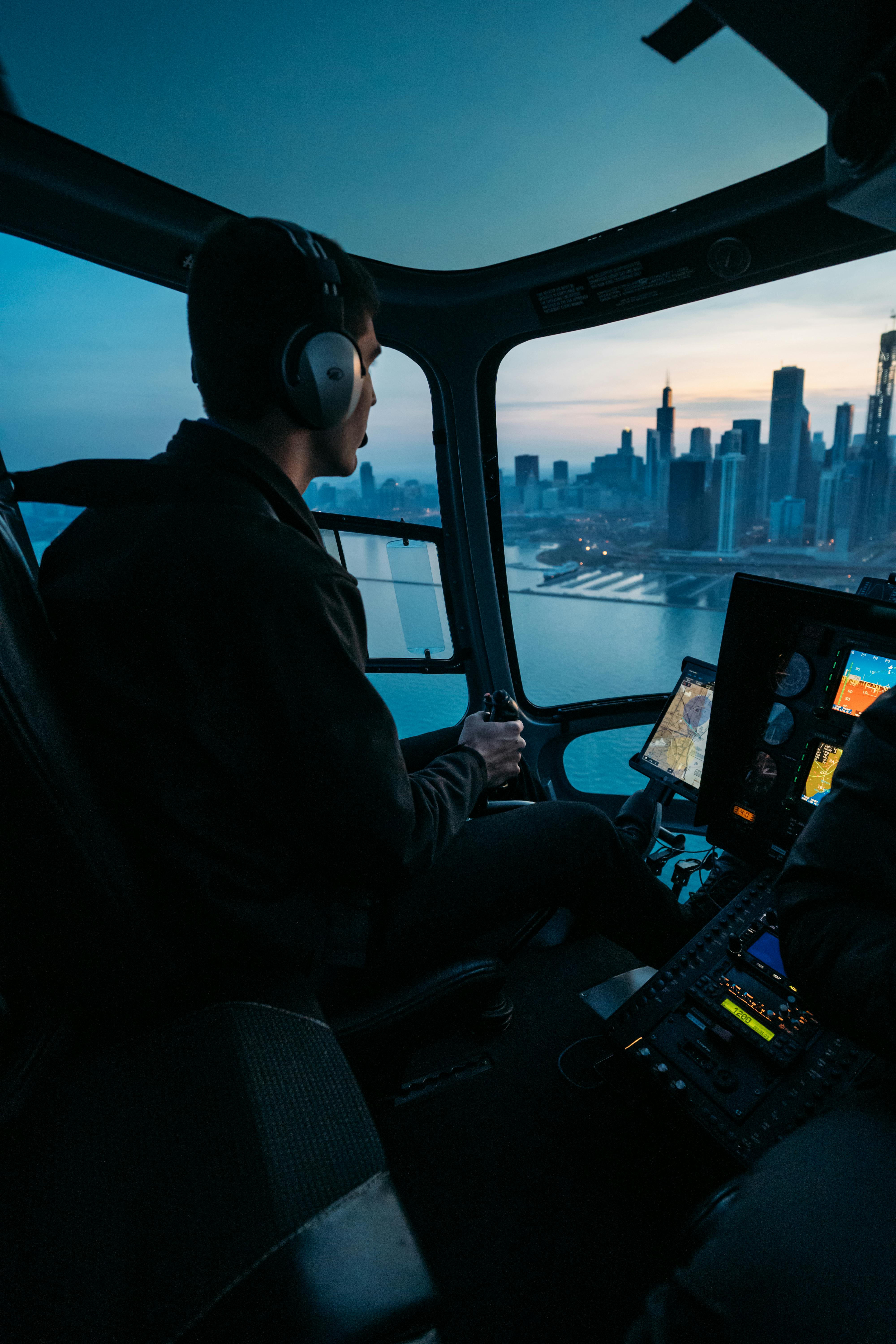When you meet someone who spends their days soaring through clouds and navigating distant horizons, there’s an undeniable allure.
Pilots carry themselves with a unique confidence, speak in fascinating technical terms, and have stories that span continents.
But before you buckle up for this particular journey, it’s worth understanding what life really looks like when your partner’s office is 35,000 feet above ground.
The aviation world brings both extraordinary rewards and distinctive challenges that can shape your relationship in ways you might not expect.
Why Pilots Make Captivating Partners
1. Financial Stability Takes Flight
One of the most practical advantages of dating a pilot is the financial security that typically comes with the profession.
Commercial airline pilots, especially those with major carriers, enjoy substantial salaries that often range from comfortable to quite impressive.
This financial foundation can provide stability for building a future together, whether that includes travel dreams, homeownership, or starting a family.
The benefits package that accompanies most pilot positions is equally attractive. Comprehensive health insurance, retirement plans, and various allowances create a safety net that many professions simply can’t match.
For someone looking to build a secure partnership, these practical considerations matter more than romance novels might suggest.

2. Travel Perks That Open the World
Perhaps the most glamorous aspect of dating a pilot is access to the aviation world’s travel benefits.
Flight benefits can turn weekend getaway dreams into reality, making spontaneous trips to Paris or casual visits to family across the country surprisingly affordable.
Many airlines extend these privileges to pilots’ partners and families, essentially putting the world at your fingertips.
The ability to explore new destinations together, often at a fraction of the typical cost, creates opportunities for shared adventures that most couples only dream about.
These experiences can strengthen your bond and create a treasure trove of memories that last long after the boarding passes are discarded.
3. Confidence That Commands Respect
There’s something undeniably attractive about someone who remains calm under pressure and makes split-second decisions that affect hundreds of lives.
Pilots develop a particular kind of quiet confidence that stems from extensive training and the immense responsibility they carry.
This translates into everyday life as someone who can handle crises with grace and think clearly when others might panic.
Their training in communication, both with air traffic control and passengers, often makes them excellent partners who can articulate their thoughts clearly and listen effectively.
The discipline required to maintain pilot certification also tends to create individuals who are reliable, punctual, and committed to excellence.
4. Fascinating Stories and Unique Perspectives
Dating a pilot means having a partner with genuinely interesting work stories.
While most people complain about mundane office politics, pilots return home with tales of spectacular sunrises above cloud layers, emergency landings that tested their skills, or encounters with unusual weather patterns that sound like adventure novels.
Their global perspective, gained from literally seeing the world from above and interacting with diverse cultures regularly, often makes for engaging conversations and a broader worldview that can enrich your own understanding of the world.
Challenges You Should Know About
1. Schedule Irregularities That Test Patience
The most significant challenge in dating a pilot is undoubtedly the unpredictable schedule. Unlike traditional 9-to-5 jobs, aviation operates on a 24/7 basis, and pilots must be available when flights need to happen.
This means missed dinners, celebrations that happen alone, and constant rescheduling of plans.
Junior pilots especially face challenging schedules with less desirable routes and timing. They might be gone for several days at a time, return home exhausted, and then leave again just as you’re settling into a routine together.
The unpredictability can make it difficult to maintain friendships, plan social events, or even establish regular date nights.
2. Physical and Emotional Distance
The nature of aviation means pilots spend significant time away from home, and this physical separation can create emotional distance if not carefully managed.
Long-haul flights might keep your partner away for days or even weeks, depending on their route assignments and airline policies.
During these separations, communication can be challenging due to time zone differences and limited connectivity during flights.
The excitement of reuniting after time apart can initially feel romantic, but over time, the constant cycle of hellos and goodbyes can become emotionally draining.
3. Social Life Limitations
Traditional social activities become complicated when your partner’s schedule is unpredictable.
Wedding invitations, birthday parties, and family gatherings often come with the caveat that your pilot partner might not be available.
This can put pressure on you to attend events alone or constantly explain your partner’s absence to friends and family.
The aviation community tends to be close-knit, which can be wonderful for support but might also mean your social circle becomes somewhat limited to other aviation families who understand the unique challenges of the profession.
4. Career Demands and Stress
While pilots are trained to handle stress, the responsibility of safely transporting hundreds of passengers creates a level of work pressure that affects home life.
Recurrent training, medical examinations, and the constant need to stay current with regulations mean that even time off often includes professional obligations.
Weather delays, mechanical issues, and difficult passengers can create work stress that carries over into personal time.
The mental demands of the job sometimes mean your partner needs quiet time to decompress rather than engaging in social activities after returning from trips.

Relationship Strategies for Success
1. Independence Is Your Superpower
Successful pilot relationships often feature partners who are genuinely independent and self-sufficient.
This doesn’t mean being emotionally distant, but rather developing your own interests, friendships, and routines that don’t depend on your partner’s presence.
Having your own career goals and social network actually strengthens the relationship by ensuring both partners maintain their individual identities.
Flexibility becomes a crucial life skill. Plans will change, schedules will shift, and learning to adapt with grace rather than frustration makes all the difference in long-term happiness.
2. Communication Strategies That Work
Effective communication becomes even more critical when dealing with time zone differences and irregular schedules.
Many successful pilot couples develop structured communication routines, such as specific times for calls or regular check-ins that work regardless of location.
Learning to communicate efficiently and meaningfully in shorter periods becomes essential.
Quality conversations might need to happen in brief windows between flights rather than leisurely evening discussions.
3. Building Your Support Network
Connecting with other pilot spouses and partners can provide invaluable support and understanding.
These relationships offer practical advice, emotional support during challenging times, and friendships with people who truly understand the unique aspects of your lifestyle.
Pilot spouse groups, both online and in-person, create communities where you can share experiences, get advice, and maintain social connections even when your partner is away.
Financial Considerations Beyond the Paycheck
The Investment in Education
While established pilots often enjoy excellent salaries, the path to get there requires significant financial investment.
Flight training, instrument ratings, and building flight hours can cost hundreds of thousands of dollars.
Many pilots begin their careers with substantial student loans that affect household finances for years.
Understanding the financial timeline of a pilot’s career helps set realistic expectations about when financial benefits will actually materialize in your relationship.
Economic Sensitivity of the Industry
The aviation industry is particularly sensitive to economic fluctuations, global events, and external factors beyond anyone’s control.
Economic downturns can lead to furloughs, reduced hours, or airline closures that dramatically affect income stability.
Having financial backup plans and understanding these industry risks is crucial for long-term planning.
Health and Lifestyle Considerations
Physical Demands and Health Effects
Flying regularly takes a physical toll that affects relationships.
Jet lag, irregular sleep patterns, and constant time zone changes can impact your partner’s energy levels, mood, and availability for activities.
Understanding these physical realities helps set appropriate expectations for when your partner is home.
The sedentary nature of long flights and irregular eating schedules can also create health challenges that require attention and support from partners.
Mental and Emotional Well-being
The responsibility of ensuring passenger safety, combined with the isolation of travel, can create unique mental health challenges.
Being supportive while also maintaining your own emotional well-being requires careful balance and sometimes professional guidance.

Long-term Relationship Planning
Family Considerations
Starting a family with a pilot brings additional considerations around childcare, emergency planning, and shared responsibilities.
Single parenting during trips becomes a reality, and having robust support systems becomes even more critical.
Many pilot families develop creative solutions for maintaining connection during absences, from technology-based bedtime stories to special traditions that work around travel schedules.
Retirement and Career Transitions
Pilots face mandatory retirement ages that vary by country and type of flying, requiring careful financial planning and consideration of second career options.
These transitions affect both partners and require long-term planning and open communication about future goals.
Making Your Decision
Dating a pilot offers a unique blend of excitement, challenge, stability, and adventure that isn’t right for everyone.
The financial benefits and travel opportunities appeal to many, but the schedule demands and time apart require specific personality traits and relationship skills to navigate successfully.
Honest self-assessment about your need for routine, comfort with independence, and ability to handle uncertainty will help determine if this lifestyle aligns with your relationship goals.
Neither the challenges nor the benefits should be underestimated.
The most successful pilot relationships involve partners who genuinely embrace the unique aspects of the lifestyle rather than simply tolerating them.
If the idea of building a life that includes irregular schedules, global adventures, and periods of independence appeals to you, dating a pilot might lead to an extraordinarily fulfilling partnership.
Consider your own goals, communication style, and life priorities carefully. With realistic expectations and strong relationship skills, pilot partnerships can soar to remarkable heights.
The key is entering with your eyes wide open, understanding both the magnificent views and the occasional turbulence that come with loving someone whose office has the best view in the world.


